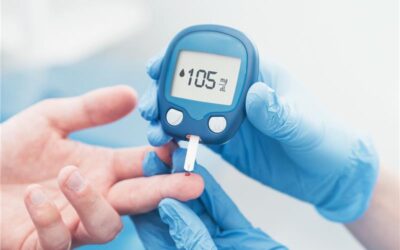Case Study
Novel Biomarkers of HIV Elite Controllers in Plasma
The Metabolon Global Discovery Panel helped the research group identify a distinct plasma metabolic signature for human immunodeficiency virus (HIV) elite controllers.
This study suggests that low-level inflammation and physiological antioxidant defense levels observed in the HIV elite controllers (EC) cohort could be important factors contributing to the elite controllers phenotype and the control of viral replication.
This study suggests that low-level inflammation and physiological antioxidant defense levels observed in the HIV elite controllers (EC) cohort could be important factors contributing to the elite controllers phenotype and the control of viral replication.

The Challenge: Understanding the Metabolome of HIV Elite Controllers
HIV elite controllers are a rare but heterogeneous group of HIV-infected individuals who can suppress viral replication despite not being on antiretroviral therapy (ART). Elite controllers maintain low levels of HIV in their blood for a prolonged period without showing any clinical symptoms of HIV infection and progression to acquired immunodeficiency syndrome (AIDS). Elite controllers are a rare patient population, <1% of HIV-infected individuals, but of great interest in HIV research because they might hold the key to developing novel HIV therapies. However, the mechanisms of how HIV elite controllers achieve viral suppression remain unclear. It is thought that a major part of maintaining undetectable viral loads can be attributed to host factors rather than viral factors. Metabolomics offers a unique opportunity to uncover how HIV elite controllers remain symptom-free without ART.
Metabolon Insight: Characterizing the Metabolome of Elite Controllers
This study utilized the Metabolon Global Discovery Panel to profile the plasma of HIV elite controllers (n = 14), untreated viremic progressors (VP) (n = 16), and HIV-negative individuals (HC) (n = 12) to get insights into the EC phenotype.1 The Global Discovery Panel‘s unrivaled coverage using a reference library of up to 5,400 semi-quantifiable metabolites offered this group the most comprehensive solution for characterizing the metabolome of the HIV elite controllers status in HIV-positive individuals.
The Solution: HIV Elite Controllers Exhibit Reduced Oxidative Stress and Inflammation
The Global Discovery Panel identified 950 metabolites in the plasma samples of HIV elite controllers, VP, and HC subjects. Most of these metabolites belonged to the class of lipids (49%), followed by amino acids (21%). VP had lower levels of several lipids compared with HIV elite controllers and HC, including metabolites belonging to polyunsaturated fatty acids, lysophospholipids, phospholipid metabolism, or lysoplasmalogen. In contrast, diacylglycerol levels were highest in VP and unchanged in HIV elite controllers compared with HC. The levels of acylcholines and choline were increased in HIV elite controllers relative to HC and VP, making these biomarkers unique to HIV elite controllers.
Untargeted metabolomics also demonstrated that HIV elite controllers exhibit reduced oxidative stress. Glutathione is an antioxidant that helps resist oxidative stress. Relative to VP, HIV elite controllers showed a significant increase in S-adenosylhomocysteine (SAH), the glutathione precursors cysteine and glycine; the cysteine-derived antioxidants hypotaurine and taurine, as well as the glutathione cycle intermediates cysteinylglycine, 5-oxoproline, glutamate, methionine, and several gamma-glutamyl amino acids. These data suggest that HIV elite controllers exhibit greater antioxidant defense activity than VP. The data also show that HC and HIV elite controllers have similar oxidative stress levels and antioxidant defense. This signature suggests that HIV elite controllers, but not VP, can keep redox homeostasis at levels seen in HIV-uninfected (HC) individuals.
The Outcome: Revealing a Metabolic Signature for Elite Controllers
The Global Discovery Panel helped identify a distinct plasma metabolic signature for HIV elite controllers. This study suggests that low-level inflammation and physiological antioxidant defense levels observed in the HIV elite controllers cohort could be important factors contributing to the HIV elite controllers phenotype and the control of viral replication. Exploring and unraveling processes of inflammation, oxidative stress, and antioxidant defense, as well as their implication in HIV-1 infection, could be important for developing new therapeutic strategies for HIV patients.
References
1. Sperk M, Mikaeloff F, Svensson-Akusjärvi S, et al. Distinct lipid profile, low-level inflammation, and increased antioxidant defense signature in HIV-1 elite control status. iScience. Feb 19 2021;24(2):102111. doi:10.1016/j.isci.2021.102111




